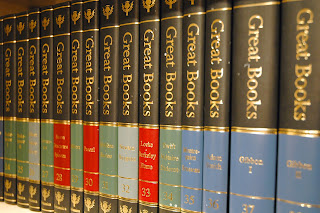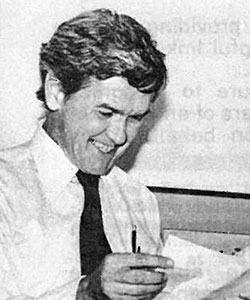When I started writing this blog post, I had planed on telling you why you, as a writer, should read each of these books that isn't about writing. Then I realized I was doing you, as a writer, a great disservice.
These are great books. You don't need my "why" they're worth reading.
Once you've read them, maybe you'll have your own reason for suggesting writers read them.
Maybe your reason and mine will be the same.
Perhaps not.
Doesn't matter.
Here's the list. Enjoy.
The Things They Carried – Tim O'BrienMan’s Search for Meaning – Victor E. Frankl
One Hundred Years of Solitude – Gabriel García Márquez
Maus – Art Spiegelman
Fahrenheit 451 – Ray BradburyA Moveable Feast – Ernest Hemingway
Sixty Stories – Donald Barthelme
A Short History of Nearly Everything – Bill Bryson
Fear and Loathing in Las Vegas – Hunter S. Thompson
The White Album – Joan Didion
The Hero with a Thousand Faces – Joseph Campbell
Beloved – Toni Morrison
Here are 6 more, because ... well, because a dozen is just not enough:
In God We Trust: All Others Pay Cash – Jean ShepherdDeep Work: Rules for Focused Success in a Distracted World – Cal Newport
Big Magic: Creative Living Beyond Fear – Elizabeth Gilbert
A Thousand Mornings – Mary Oliver
I Know Why the Caged Bird Sings – Maya Angelou
The Alchemist – Paulo Coelho
And, finally, here are 6 more that you've probably read, but deserve to be reread now that you've put in some time as a writer:
To Kill a Mockingbird – Harper Lee
The Cat in the Hat – Dr. Seuss
The Catcher in the Rye – J.D. Salinger
Slaughterhouse-Five – Kurt Vonnegut
The Great Gatsby - F. Scott Fitzgerald
The Grapes of Wrath - John Steinbeck
This was a tough exercise. Consider trying it yourself.
List 12 books to recommend to writers ... but none of the books can be about writing.
You'll force yourself to make uncomfortable decisions, 'cause making a list of 250 books is easier, but not really that helpful.
Difficult decisions like how do I pick only one from Hemingway? Or how do I leave certain authors off the list altogether? Like Twain. And Austen. And Haley. And Faulkner. And Baldwin.
Told you it's a tough exercise.
But it forced me to think about writing. And reading. And my approach to my craft.
I found it worthwhile.
Hope you do, too.
_________________________
Of course, I also suggest you read books about writing: 17 Books Writers Must Read
And you might be interested in Ernest Hemingway's suggested reading list for aspiring authors






